Interview: Rudi Dharmalingam Talks MARY STUART Return
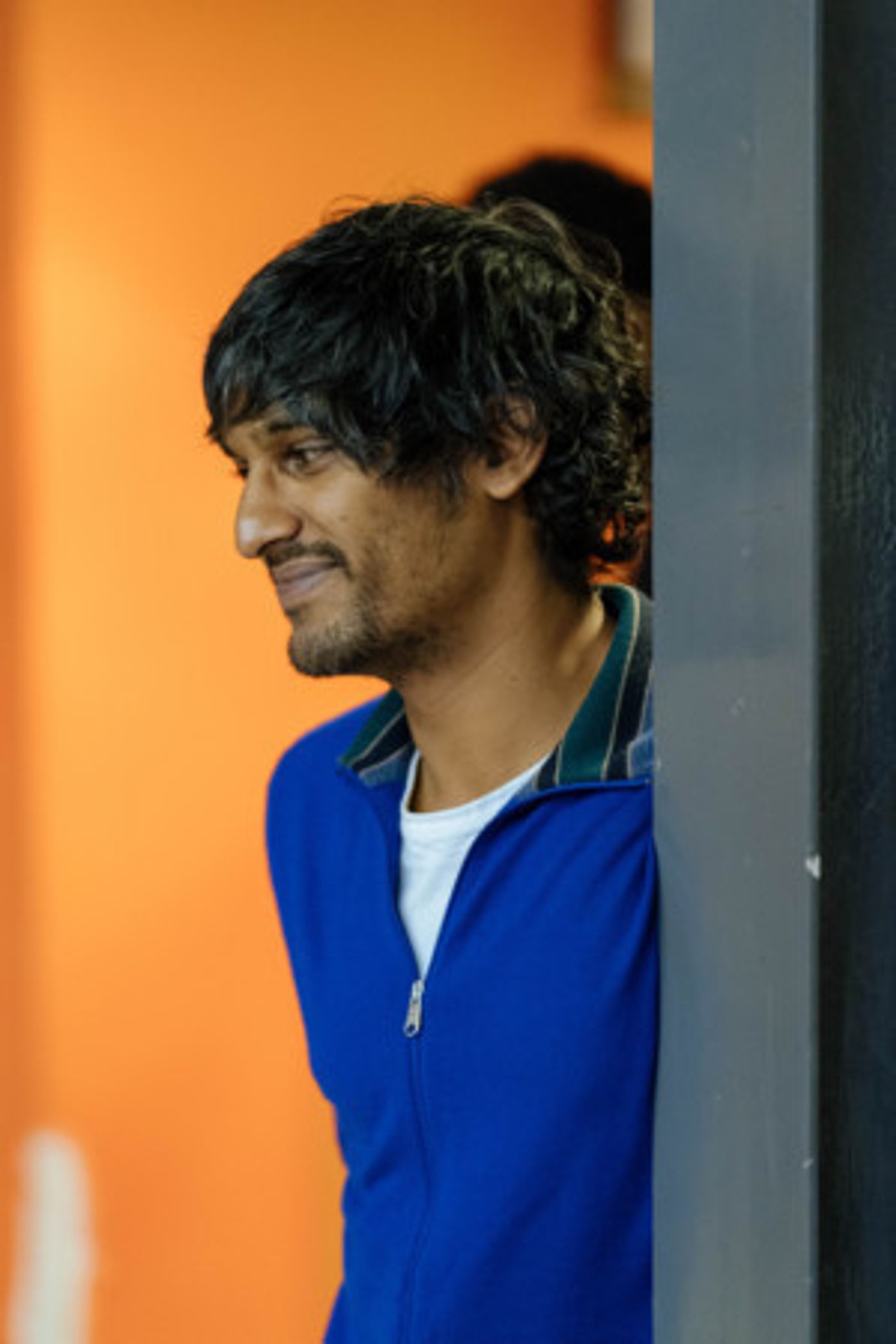
Mary Stuart returns to the London stage, following a sell out run at the Almeida Theatre. Playing the role of Mortimer, Rudi Dharmalingam spoke to us about preparing to revisit the character, working with director Robert Icke, and the significance of the play today.
How did you first get into acting?
At school growing up, I was never hugely academic. I suppose I was sort of searching for something that I excelled at, something that I was good at.
And as a child, my passion from a very, very early age when I was about seven was actually table tennis.
Wow, really?
Yes, that's what I did! I travelled the country and played on the whole tournament circuit. That was my discipline, that was what I focused all my efforts into. And then when I was fourteen or fifteen, I started doing GCSE Drama. I discovered theatre and performance.
In hindsight it was appealing because it provided a cathartic release from all the teenage angst and childhood events that we all go through. This chance to express my self though imagined circumstances is what still does it for me.
After that, I did Theatre Studies at A-Level and then went on to the National Youth Theatre. That was a really pivotal moment.
And after your studies finished, one of your earliest jobs was performing in the National Theatre's The History Boys.
Yes, The History Boys was my first professional job really. I was covering Dominic Cooper for over a year. And I learned so much from working with people like Richard Griffiths and Frances de la Tour and Clive Merrison and obviously Nicholas Hytner as well.
So that was a real foundation to my work. I really saw that as an apprenticeship, I soaked up as much as I could from that experience. And I actually saw James [Corden] a few weeks ago when I was out in LA, and he's obviously doing quite well for himself!
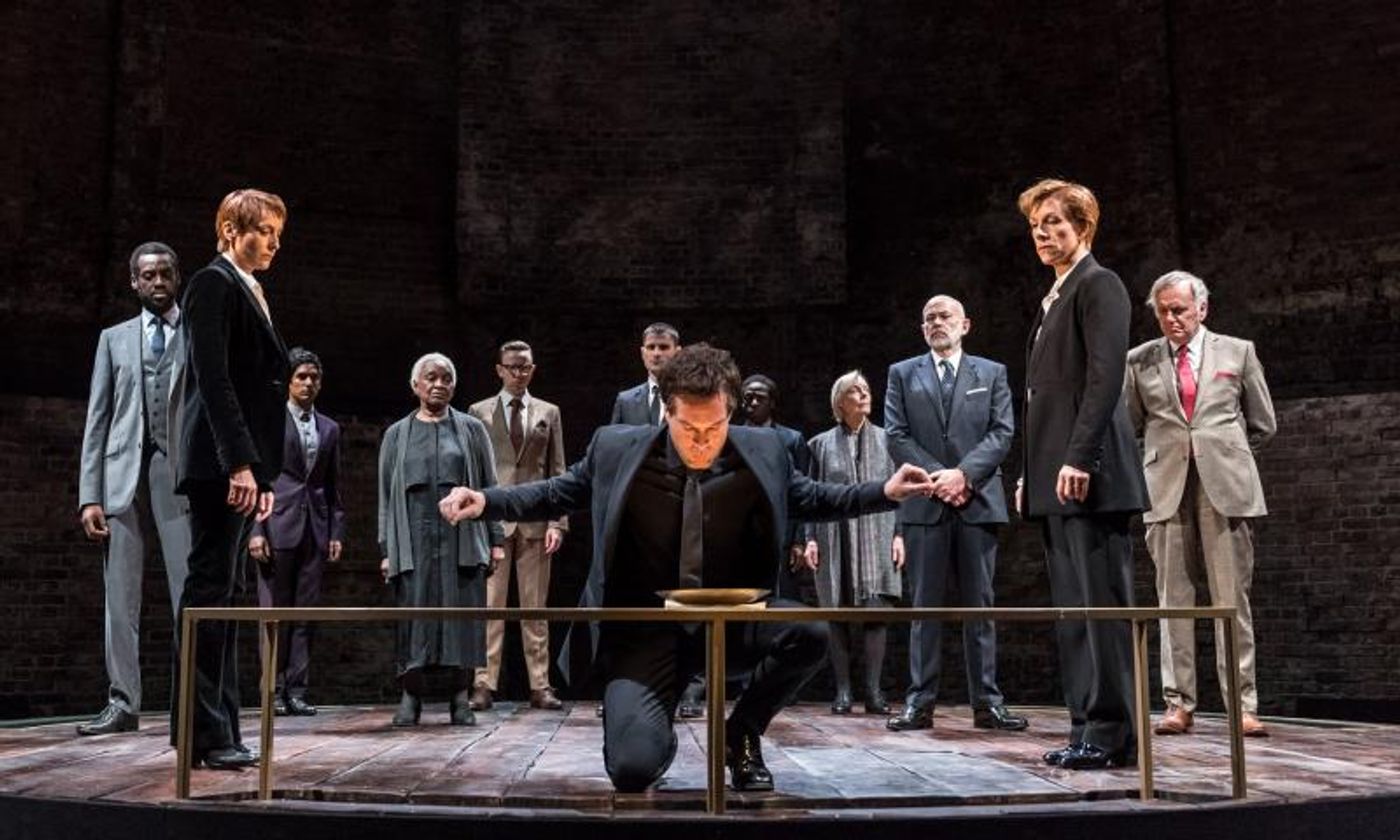
Do you remember the first production you ever saw?
I don't know...I think it may have been Joseph and the Amazing Technicolor Dreamcoat. And I think I was about fourteen and it was a school trip.
But you know, I was never one of these sort of people who had an epiphany when they saw their first theatrical production. I only fell in love with it once I started doing it. I didn't fall in love with seeing it and experiencing it; I actually fell in love with performing it and the storytelling.
Storytelling is the fundamental part of what I fell in love with, the idea of actually getting underneath a character's skin that is so far removed from myself. I found that really liberating and thrilling. And I still do.
Speaking of far removed, the 16th century is fairly far! Were you familiar with the history behind Mary Stuart?
Not at all. And that fundamentally is another part of what I love about my job: every single project whether it's TV or theatre requires research. It requires you to delve and get into the notion of an area of history or a topic or a subject that you're not familiar with. So I suppose it's a constant education. Every job is an education, which is a big appeal really.
So no, I wasn't familiar with Mary Stuart and I wasn't familiar with that period of history. And it's a fascinating piece, set against the backdrop of religious upheaval and political strife in late 16th century Europe, and specifically late 16th century England.
And I think what's really fascinating about this show is it gives an insight into the private, often unseen emotions of the establishment and royalty in very, very political and moral dilemmas.
And you know, every leader, every political leader has to make very difficult decisions: whether it's cutting the £10 seats, cutting disability benefit, or cutting the arts. And I suppose it's an interesting insight into that world of dilemma.
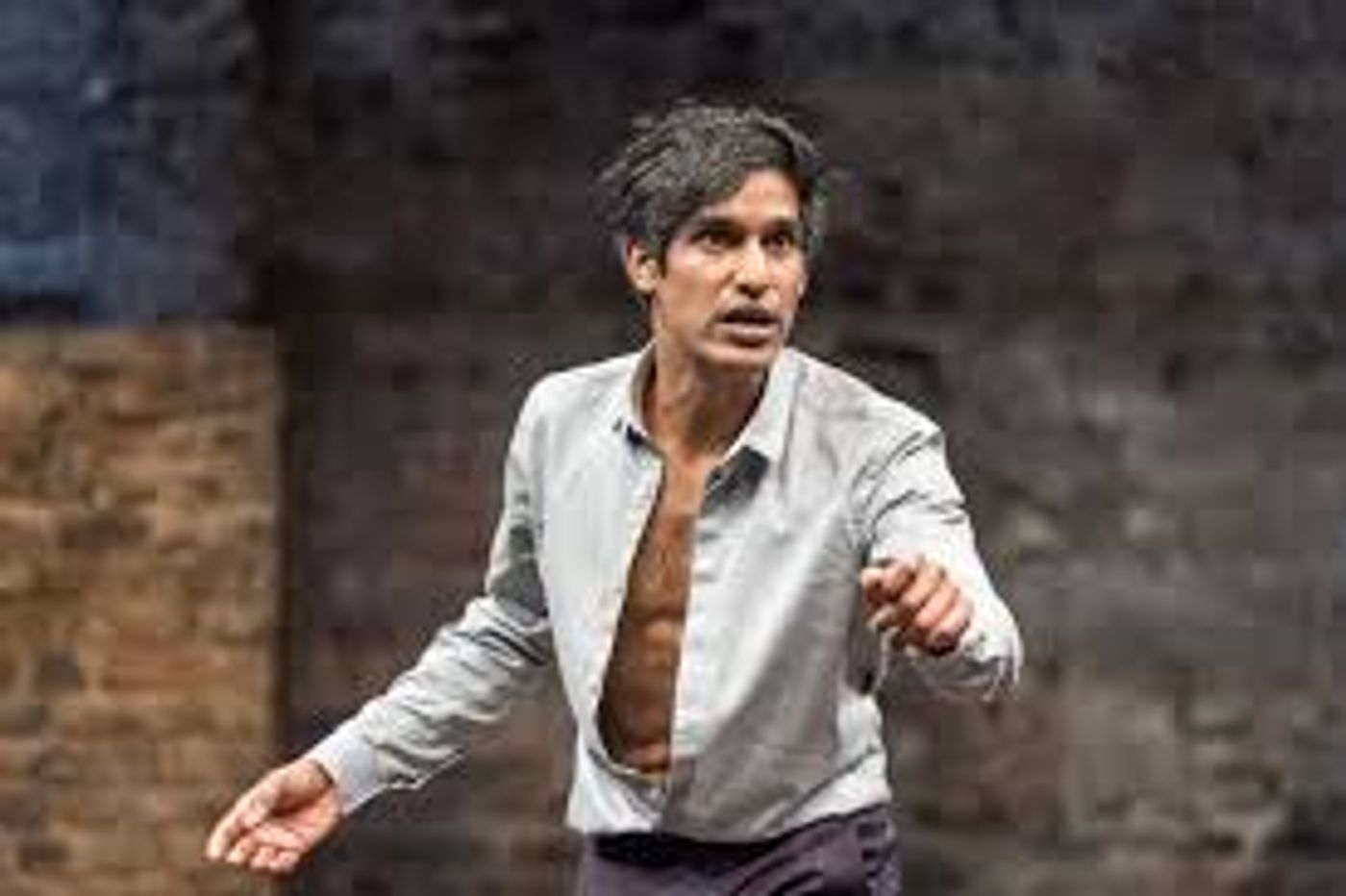
And what can you tell us about the character you play?
So the character that I play is Mortimer. He's a young guy who has been raised as a Protestant in a fairly strict regime to reject the idea of Catholicism, to see it as a dangerous ideology and a threat. And in his early twenties he goes travelling, and he discovers Catholicism and he converts to Catholicism.
Mortimer believes that it's his divine right to save Mary Stuart from execution and to free her from prison. He believes it because of a few different reasons. He believes it because he discovers his uncle has become Mary Stuart's new jailer, which essentially gives him the keys to her cell.
And he falls in love with Mary Stuart, he becomes infatuated with her. And so he and some of her former plotters begin to hatch a plan to free her from prison and kill Elizabeth I.
You played Mortimer at the Almeida last year. How did you prepare for returning to this role this time round?
Well when we did it the first time, in approaching his pro-Catholicism and the seductiveness of that religion (although every religion is seductive!) I was working off of imagery that I found on the internet. Images of the Basilica, images of the Vatican, images of the Sistine Chapel, that kind of thing.
But this time round, I had a little bit of time and I thought, "I'm going to go to Rome!" So I actually went to Rome a couple of weeks before we started rehearsals, just for one night. I went to see the Sistine Chapel and I went to see the Basilica and I went to see the Vatican Museum. And I got to experience that.
And I think it was really fundamentally important for me to have some kind of tangible, emotional memory to grab hold of. And it is very seductive and it's very theatrical. You can see very easily how anyone can be seduced by that world, because it is beautiful.
And hopefully that can help me in my performance. So now when I'm talking about the beauty of Catholicism, it just means I'm not working from images I've pulled out of Google. These are images and actual authentic emotions that I experienced myself from going to Rome.
How was the original run at the Almeida?
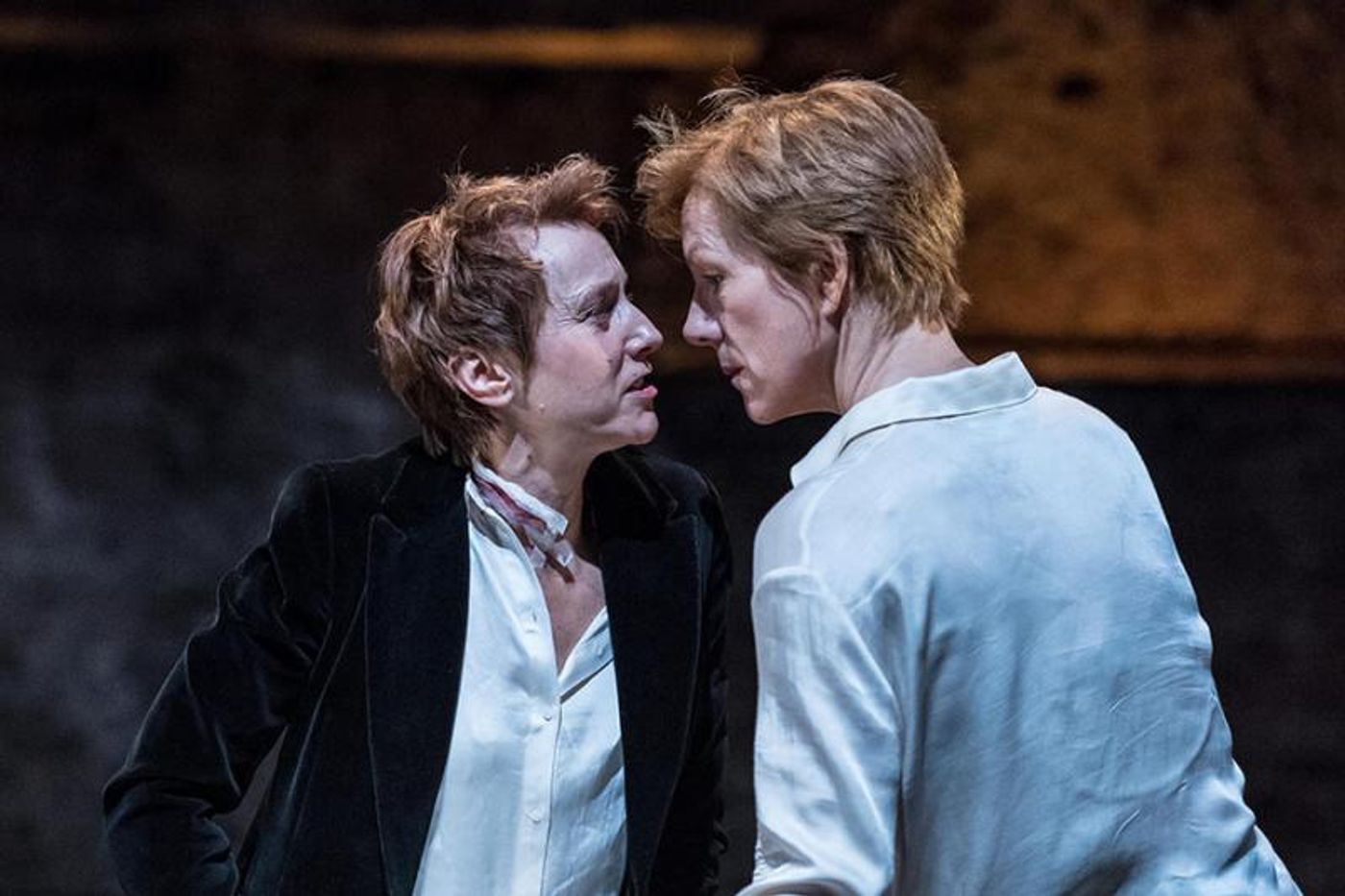
in Mary Stuart
It was lovely. To be honest, my most satisfying and enjoyable professional experiences have been in more intimate spaces like the Almeida, like the Royal Court, like the Young Vic.
The Almeida has an incredible atmosphere for intimacy, you can afford to be intimate knowing full well you're still hitting the back row of the circle. So I love working there.
And you open in a few weeks at the Duke of York's Theatre.
Yes, and I haven't seen the theatre myself yet. I haven't had a sniff around yet!
But it's going to be interesting to know how intimate we can be in this space. I mean the Duke of York's isn't a particularly huge theatre, so I think we'll still be able to maintain that level of intimacy.
Do you think your performance and the show itself will change in the transfer?
I mean what's been amazing about this second rehearsal period is that I've never re-rehearsed a show. So this is the first time I'm doing it. And I was very, very sure that I didn't want to replicate something that I'd already created.
I was very sure that I had to find different nuances, different ways and modes of thoughts, and different channels that I wanted to explore with Mortimer. So these four weeks have been really enlightening actually.
And the director Robert Icke has really given all of us the freedom of discovering new things. That has been incredibly exhilarating really. So it feels like a completely different show, I would say. We've gone much deeper, we've gone much more textured and much more layered with all of the performances this time round.
Essentially, we had six weeks of rehearsal the first time round, we've had four weeks of rehearsal this time round, plus we obviously had six weeks of playing, so we've had sixteen weeks of practice to really refine and hone and perfect.
And that's something that Rob is really passionate about and that's something I'm really passionate about as well, that level of commitment. Also, I love working with Rob because he demands that commitment, he demands such discipline in all of us.
And that is what makes me who I am as an actor, that sort of level of discipline and structure. And to be honest, I'm able to trace that work ethic all the way back to my childhood, probably from playing table tennis.
That level of commitment to table tennis that I showed from a very early age, in combination with the disciplinarian tendencies that my dad had as well. So that's something that I'm really proud of, my work ethic and commitment.
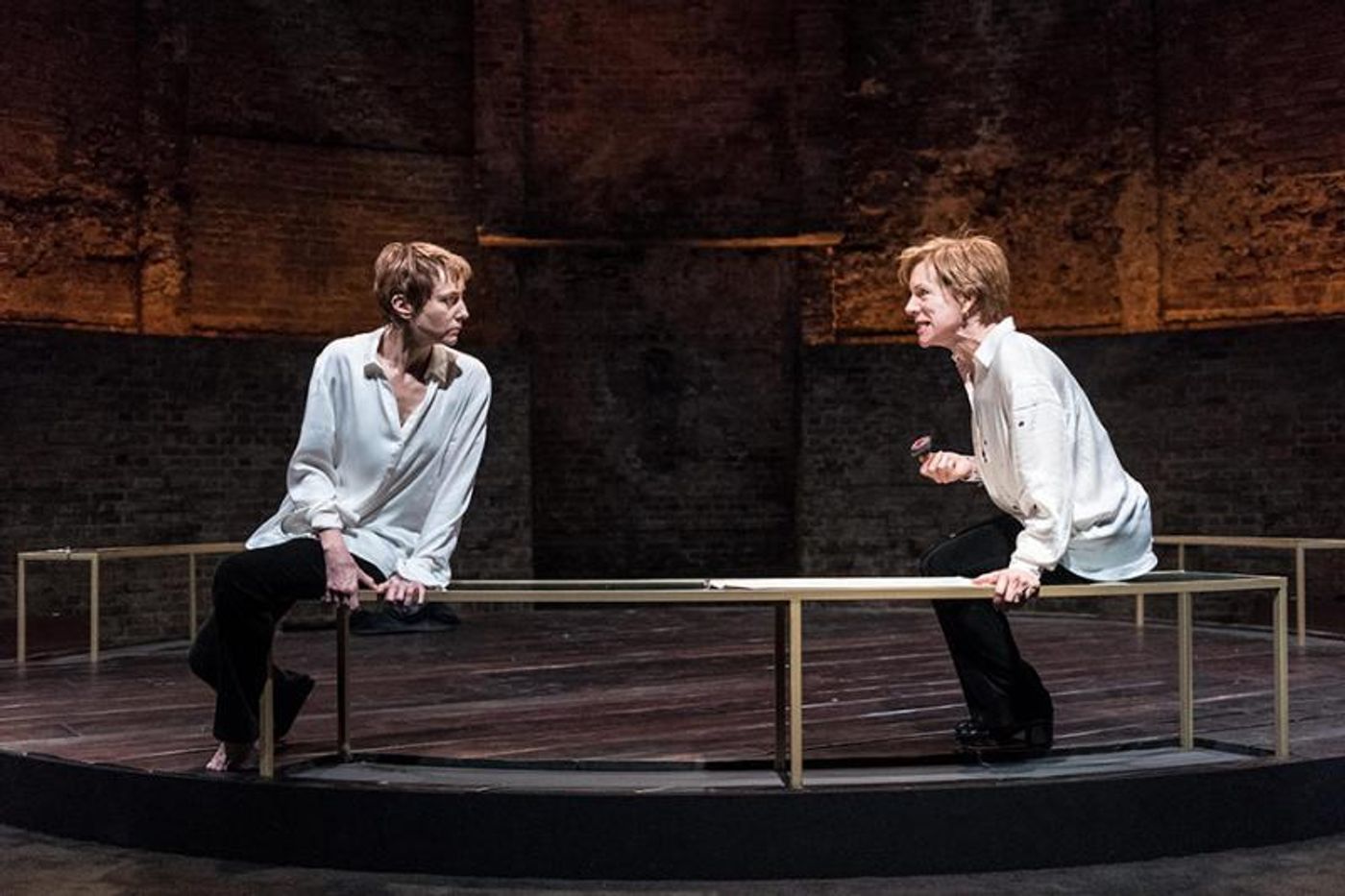
in Mary Stuart
Finally, why should audiences come to Mary Stuart?
Audiences should come and see Mary Stuart because as I said, it provides a really fascinating insight into a period of history. It stages those unseen thoughts and dilemmas that the establishment has to make behind closed doors.
And I think with the current state of political affairs in our country with Brexit, there's huge parallels with what's going on there. You have this situation where Elizabeth I has been excommunicated by the Pope, essentially isolated from large parts of Europe, which is of course what we're experiencing now.
And Elizabeth is in this situation where she either has to make the decision to execute Mary Stuart or save her life. So if she decides to execute Mary Stuart, then she faces the possibility of a backlash, a rebellion and further plotting to her life. And if she doesn't kill Mary Stuart, then she faces the same possibilities.
So I think that she's in a dilemma either way...a little bit like Brexit. If we continue with Brexit, unfortunately we're probably facing decades of economic turmoil and a less prosperous future for our children and our great grandchildren. If we have another referendum, we risk uprisings and a public outcry on the streets from the Leavers.
So it's a double-edged sword. And I think the play is something that is deeply pertinent to our current politically turbulent times.
Mary Stuart plays the Duke of York's Theatre 15 January-31 March
Photo credit: Manuel Harlan
Powered by
|
Videos

